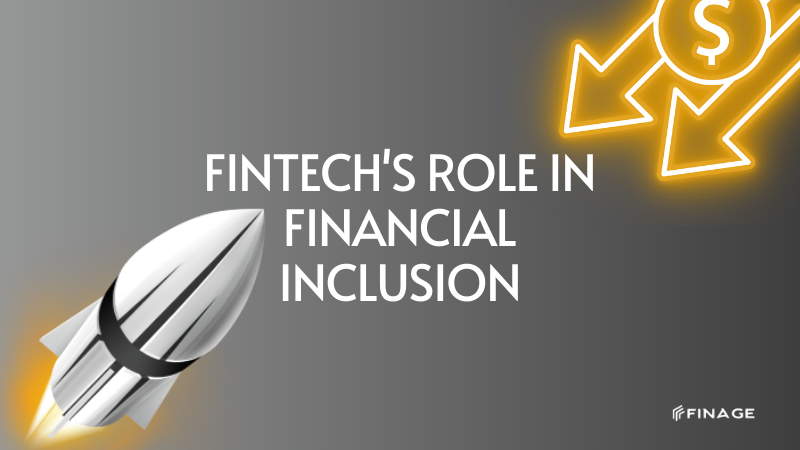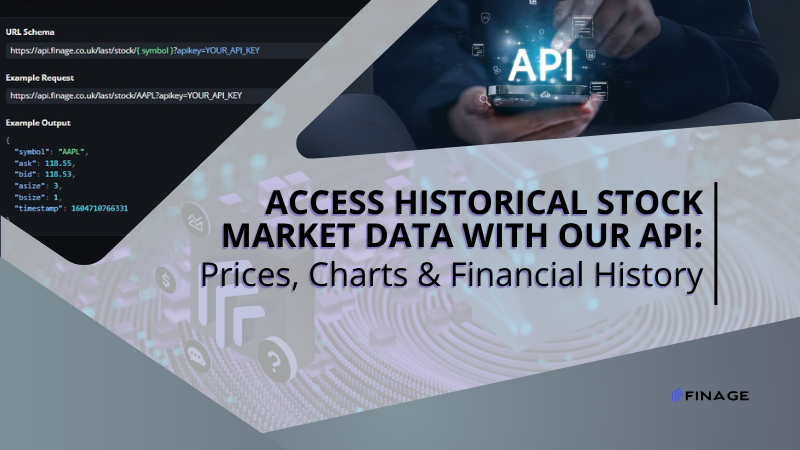Fintech's Role in Financial Inclusion
5 min read • January 13, 2024

Introduction
Financial inclusion, aimed at providing equitable access to financial services for both individuals and businesses, stands as a crucial driver for poverty alleviation and economic growth. The evolution of financial technology, or FinTech, has significantly contributed to advancing this goal by democratizing access to financial services. FinTech innovations have revolutionized the traditional financial landscape, particularly benefiting underserved communities that have historically faced barriers to accessing banking and financial resources.
One of the remarkable contributions of FinTech to financial inclusion lies in its ability to transcend geographical limitations. Through mobile banking, digital payment solutions, and innovative lending platforms, FinTech has brought financial services directly to the fingertips of individuals in remote and underserved areas. Mobile money platforms, for instance, enable secure and convenient transactions, allowing the unbanked population to save, transfer funds, and access credit without the need for traditional banking infrastructure. Moreover, the use of alternative data and innovative credit scoring models in FinTech has facilitated access to credit for individuals with limited or no credit history, fostering entrepreneurship and economic empowerment within marginalized communities.
The transformative impact of FinTech in enhancing financial inclusion extends beyond individuals to encompass small and medium-sized enterprises (SMEs) as well. FinTech solutions offer streamlined access to capital, efficient payment systems, and tailored financial products, empowering SMEs to grow and thrive. By leveraging technology-driven financial services, underserved businesses can access funding, manage cash flow, and expand their market reach, thus contributing significantly to job creation and economic development.
Table of Contents
- Understanding Financial Inclusion
- Definition and Importance
- Current Challenges in Financial Inclusion
- FinTech: A Catalyst for Change
- Innovations in FinTech
- How FinTech Supports Financial Inclusion
- Mobile Banking and Digital Payments
- Expanding Access to Banking Services
- The Impact of Mobile Wallets and Payment Apps
- Peer-to-Peer Lending and Microfinancing
- Facilitating Access to Credit
- Success Stories in Microfinancing
- Blockchain and Financial Inclusion
- Decentralized Financial Services
- Use Cases in Underbanked Regions
- The Role of AI and Data Analytics
- Personalizing Financial Services
- Enhancing Credit Scoring Models
- Regulatory Framework and FinTech
- Navigating the Regulatory Landscape
- Collaboration Between Regulators and FinTech Firms
- Challenges and Risks
- Addressing Security Concerns
- Ensuring Sustainable Growth
- Future Prospects and Developments
- Emerging Trends in FinTech
- Potential Impact on Global Financial Inclusion
- Conclusion
- References
Understanding Financial Inclusion
Definition and Importance
Financial inclusion refers to the availability and equality of opportunities to access financial services. It is fundamental in reducing poverty and achieving inclusive economic growth.
Current Challenges in Financial Inclusion
Traditional banking systems often fail to reach low-income populations and those living in remote areas, leaving a significant portion of the global population unbanked or underbanked.
FinTech: A Catalyst for Change
Innovations in FinTech
FinTech companies are leveraging technology to offer more accessible, cost-effective, and user-friendly financial services.
How FinTech Supports Financial Inclusion
By using digital platforms, FinTech is able to bypass traditional infrastructural barriers and reach a wider audience, including those previously excluded from the financial system.
Mobile Banking and Digital Payments
Expanding Access to Banking Services
Mobile banking has been instrumental in extending financial services to people without access to traditional banks, especially in rural or underserved areas.
The Impact of Mobile Wallets and Payment Apps
Mobile wallets and payment apps allow users to perform transactions, pay bills, and manage finances directly from their mobile devices, greatly increasing financial participation.
Peer-to-Peer Lending and Microfinancing
Facilitating Access to Credit
Peer-to-peer lending platforms and microfinancing initiatives provide loans to small business owners and individuals who lack access to conventional banking loans.
Success Stories in Microfinancing
These models have successfully empowered entrepreneurs in developing countries, fostering economic growth and self-sufficiency.
Blockchain and Financial Inclusion
Decentralized Financial Services
Blockchain technology offers decentralized financial services, reducing the need for intermediaries and lowering transaction costs.
Use Cases in Underbanked Regions
In regions with underdeveloped banking infrastructure, blockchain can provide secure and transparent ways to handle transactions and store assets.
The Role of AI and Data Analytics
Personalizing Financial Services
AI and data analytics enable the customization of financial products to meet individual needs, making services more relevant and accessible.
Enhancing Credit Scoring Models
Advanced data analytics help in developing more accurate credit scoring models, which can assess the creditworthiness of individuals who lack traditional credit histories.
Regulatory Framework and FinTech
Navigating the Regulatory Landscape
As FinTech companies innovate AI, they must navigate complex regulatory environments to ensure compliance and protect consumers.
Collaboration Between Regulators and FinTech Firms
Collaboration is key to creating a regulatory framework that supports innovation while safeguarding the financial system's integrity and stability.
Challenges and Risks
Addressing Security Concerns
As digital financial services grow, addressing cybersecurity risks and protecting user data becomes increasingly important.
Ensuring Sustainable Growth
Ensuring the sustainable growth of FinTech solutions is vital for their long-term contribution to financial inclusion.
Future Prospects and Developments
Emerging Trends in FinTech
Technological advancements like 5G, IoT, and the increasing use of big data are set to further transform the FinTech landscape.
Potential Impact on Global Financial Inclusion
Continued innovation in FinTech holds the potential to significantly expand financial inclusion, driving economic empowerment worldwide.
Conclusion
FinTech stands as a beacon of hope in addressing the longstanding issue of financial inclusion, showcasing remarkable potential in extending financial services to underserved populations. Its innovative solutions have been instrumental in bridging the gap, breaking down barriers that have impeded access to traditional financial services for many. As the FinTech sector undergoes continuous evolution, its pivotal role in cultivating a more inclusive financial ecosystem becomes ever more pronounced.
The transformative impact of FinTech in fostering financial inclusion cannot be overstated. By leveraging technology and innovation, FinTech companies have devised accessible and user-friendly solutions, allowing individuals and businesses, previously excluded from mainstream financial systems, to access banking services, credit, insurance, and investment opportunities. The evolution of the FinTech landscape holds immense promise in further advancing financial inclusivity by tailoring solutions to diverse needs and circumstances. As it expands its reach and refines its offerings, the sector has a crucial role in ensuring that financial services are not just accessible but also tailored to meet the unique requirements of different communities worldwide. Embracing this ongoing evolution, FinTech is poised to continue as a driving force in building a more inclusive financial environment that empowers individuals and propels economic growth on a global scale.
You can get your Real-Time and Historical Market Data with a free API key.
Build with us today!
Claim Your Free API Key Today
Access stock, forex and crypto market data with a free API key—no credit card required.

Stay Informed, Stay Ahead
Finage Blog: Data-Driven Insights & Ideas
Discover company news, announcements, updates, guides and more


